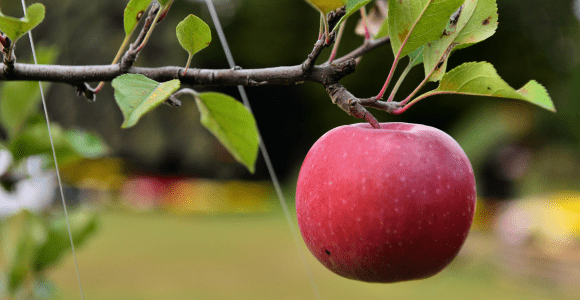
As we wrap up our consideration of how different kinds of Christianity produce different kinds of fruit, again, I live in Appalachia. We have different kinds of Christianity here in these hollers. One kind is the evangelical, fundamentalist brand of Christianity, produces one kind of fruit in our communities. Another inclusive, progressive kind of Christianity is intentional about producing a different kind of fruit.
Welcome Readers! Please subscribe to Social Jesus Here.
(Read this series from the beginning at Part 1 and Part 2.)
The fruit that certain kinds of Christianity we have here is to harm trans kids and other LGBTQ people; to remove the bodily autonomy and health care rights women have in society and treat women as second-class members in their faith communities while giving men more privileged leadership positions. Other harmful fruits grown in this kind of soil include bigotry and harm toward immigrants, even in the face of the wisdom found in the Hebrew Scriptures to “do no wrong or violence to the foreigner” (Jeremiah 22:3). This community also elects leaders who work to remove funding that helps the poor and unemployed. How could this align with the Jesus found in their gospel stories? That Jesus preached “good news to the poor” and taught those who have more than they need to care about and share with those who have less.
There are also progressive kinds of Christians in Appalachia whose fruit is feeding the poor, speaking out and working for the healthcare rights and choices of women, the rights of LGBTQ folk and more. These kinds of Christianity want free school lunches for students knowing that many students live in counties where food is scarce. These kinds of Christianity want healthcare for all. These kinds of Christian communities are the ones that keep me from giving up on Christianity in its entirety here in Appalachia. They demonstrate that there is a way to interpret the Jesus of the Jesus story that produces fruit that is in harmony with the ethics we read of in the Jesus story.
Another example is from a post I shared seven years ago now. Back in 2017, I shared a post from the good folks over at Queer Theology on Facebook on the fruit of affirming theology. It’s a great example of the principle we are considering this week. The fruit of anti-LGBTQ theology is depression, despair, suicide, fractured families, loss of faith, bullying and harassment, while the fruit of affirming theology is a return to faith, healing of relationships, vibrance and resurgence in church life. I think of Christian LGBTQ communities I’ve had the blessing of ministering to and fellowshipping with over the years and how these communities have repeatedly borne out demonstrated faith and dedication to following Jesus. And I will be forever indebted to the beautiful version of Jesus these communities introduced me to over a decade ago now.
Christianity has often found itself at a crossroads when it comes to social engagement. Too often, historically, we have found ourselves on the death-dealing side of social issues and only making life-giving changes when the society outside of our faith communities pressures us to embrace its wisdom. We are at one of those cross-roads today, again.
I don’t understand how so many Christians can support unChristlike, anti-sermon-on-the-mount policies, values, and politicians. I’m at a loss to explain it. Our choices will produce fruit. And by that fruit generations will assess whether Christianity has anything life-giving to offer. In Matthew, Jesus warns the elite and powerful class of his day (who were complicit in the harm of the vulnerable in his own society) of producing fruit that was out of harmony with a world that is safe, just, compassionate for everyone. Those words apply to Christianity, today, too: “I tell you that the kingdom of God will be taken away from you and given to a people who will produce its fruit.” (Matthew 21:43). Today, it is no secret that many kinds of Christianity are failing to produce the kind of fruit that makes this world a better place, fruit that is in harmony with the teachings of Jesus and the Jesus story. In fact they are producing thorns and thistles, instead. They are obstructing the kind of world their Jesus sought to create. We must be careful and intentional here. Otherwise, we will find ourselves fighting against the very people and movements who are bearing life-giving fruit. We can, if we choose, be a part of building a world that is just and safe for everyone. It will require change for some types of Christianity. And this change, in the end, will be worth all the effort it takes.
Are you receiving all of RHM’s free resources each week?
Begin each day being inspired toward love, compassion, action, and justice. Free
Sign-Up at:
https://renewedheartministries.com/

















